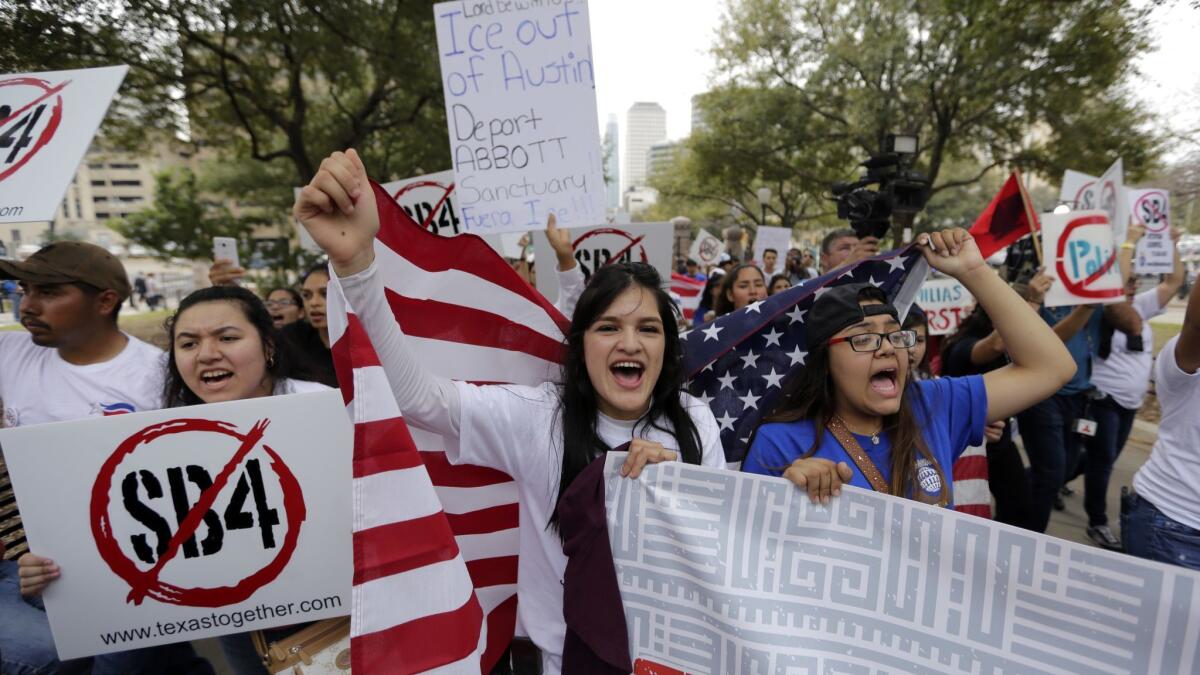U.S. appeals court upholds Texas law against ‘sanctuary cities’

- Share via
Reporting from AUSTIN, Texas — A federal appeals court Tuesday upheld the bulk of Texas’ crackdown on “sanctuary cities” in a victory for the Trump administration as part of its aggressive fight against measures seen as protecting immigrants who are in the U.S. illegally.
The ruling by a three-judge panel of the U.S. 5th Circuit Court of Appeals in New Orleans allows Texas to enforce what many consider the toughest state-level immigration measure since Arizona passed what critics called a “show your papers” law in 2010.
The Texas law allows police officers to ask people during routine stops whether they’re in the U.S. legally and threatens sheriffs with jail time for not cooperating with federal immigration authorities.
The ruling came a week after the U.S. Justice Department — which had joined Texas in defending the law known as Senate Bill 4 — sued California over state laws aimed at protecting immigrants.
“Dangerous criminals shouldn’t be allowed back into our communities to possibly commit more crimes,” Republican Texas Atty. Gen. Ken Paxton said in response to the ruling.
Leading the lawsuit were Texas’ largest cities — including Houston, Dallas, San Antonio and Austin — in a state where the Latino population has grown at a pace three times that of white residents since 2010.
Under the Texas law, local authorities can be fined for failing to honor federal requests to hold for possible deportation people jailed on offenses that aren’t immigration-related. Police chiefs, sheriffs and constables could also now face removal from office and even criminal charges for failing to comply with such federal “detainer” requests.
Lee Gelernt, an attorney for the American Civil Liberties Union, said the organization was disappointed in the ruling and will closely monitor how the law is implemented. The only part of the law removed by the court was a portion prohibiting local officials from “endorsing” policies that limit immigration enforcement.
More to Read
Sign up for Essential California
The most important California stories and recommendations in your inbox every morning.
You may occasionally receive promotional content from the Los Angeles Times.












